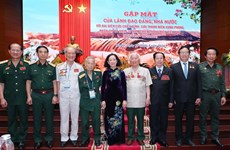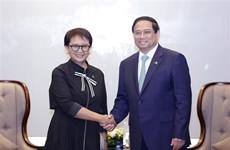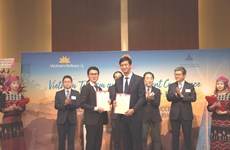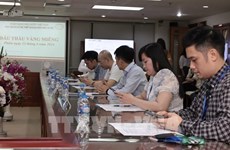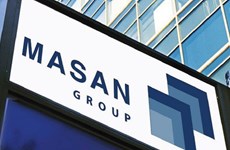Emerging market status key to netting foreign investment
Upgrading the stock market into an emerging market is one the Vietnamese Government’s key goals, with a view of attracting more foreign investment.
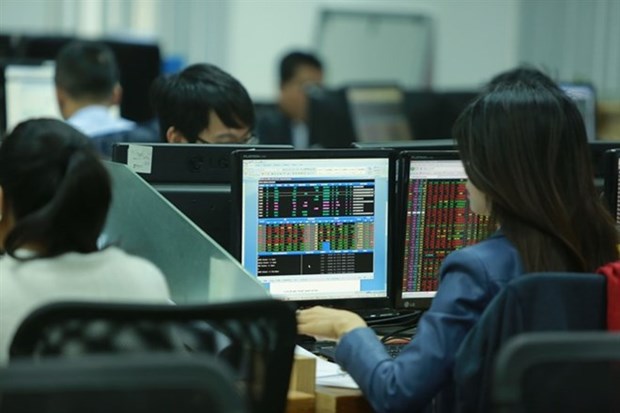 A trading session at the MB Securities Company. (Photo: VNA)
A trading session at the MB Securities Company. (Photo: VNA)Hanoi (VNA) – Upgrading the stock market into an emerging market is one the Vietnamese Government’s key goals, with a view of attracting more foreign investment.
The US-based Morgan Stanley Capital International (MSCI) annually categorises markets across the world as developed, emerging or frontier markets, with Vietnam classified a frontier, the lowest on the ranking scale.
The Vietnam Economic Times said there are two main driving forces behind the determination made by Vietnam and other frontier markets to turn themselves into emerging ones.
First, an emerging market (EM) boasts larger scale and higher quality compared to a frontier market (FM) and embodies more growth potentials than a developed market (DM). EMs tend to attract more secure investment other than hot money often poured in FMs, while passive investment funds, like exchange-traded funds, are likely to concentrate resources on veteran EMs or newly-recognised EMs.
Second, becoming an EM means going through a major boost to the market size, liquidity and accessibility. The process will exert pressure for changes to improve legal framework and information transparency.
According to the MSCI Market Classification Framework, in order to be categorised as an EM, a country must has at least three companies fulfilling the requirements of securing 1.26 billion USD in company size (full market cap), 630 million USD in security size (float market cap), and an annualised traded value ratio of 15 percent.
As of May 2016, Vietnam had only one company meeting these specifications. The Sai Gon Securities Incorporation (SSI) said the figure reaches four at the present time.
The EM status also requires market accessibility criteria, which include openness to foreign ownership, ease of capital inflows/outflows, efficiency of the operational framework, and stability of the institutional framework. These qualitative criteria are accessed by the MSCI once a year via its Global Market Accessibility Review. In a review announced in June 2016, the MSCI remained its classification for Vietnam, but noting some of the country’s improvements in foreign ownership in terms of announcements in English and registering process applied for foreign investors.
Overall, quantitative criteria pose minor obstacles to Vietnam, as the country has gathered enough representatives, which are likely to increase in the future.
The main barrier is qualitative criteria. Two years after ceiling ownership for foreign investors raised to 100 percent, the number of foreign shareholders remains relatively low. Capital inflows/outflows, meanwhile, are facing challenges from tightly monitored foreign exchange market in protection of the local currency.-VNA






